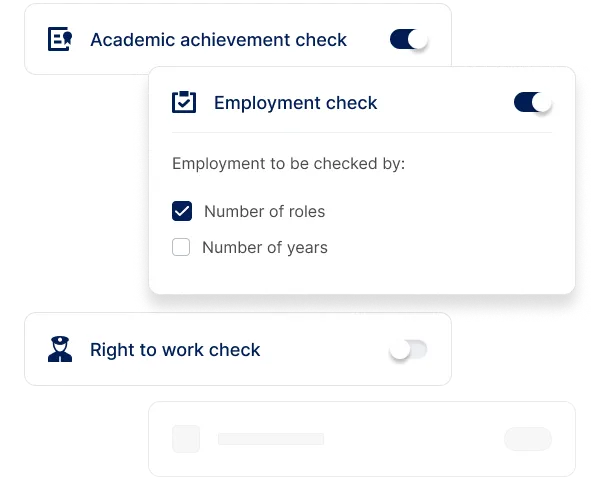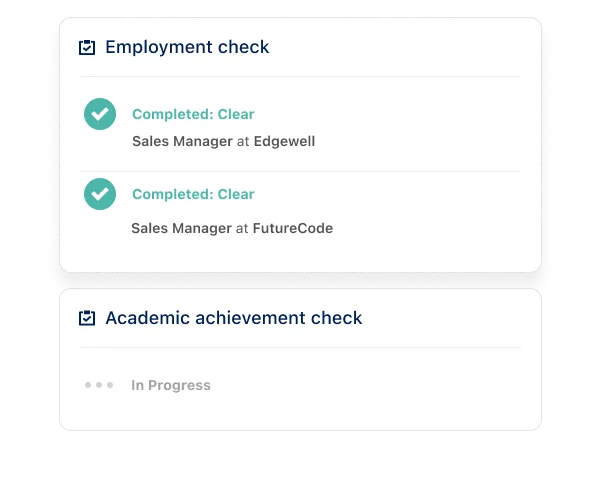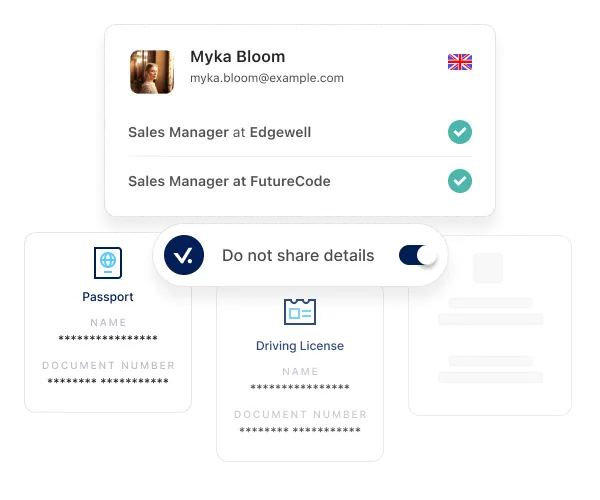A Comprehensive Guide to Employment Background Checks in Ireland
Everyday, Veremark carries out background screening all over the world for companies who need checked and verified employees. If you’re looking for background checks in Ireland, here’s some information that might help.
Ireland, a thriving hub of innovation and business growth, continues to attract global talent across various industries. As companies expand their operations, ensuring the right hiring decisions becomes crucial. Employment background checks are essential to verifying a candidate’s history, safeguarding businesses, and complying with legal obligations. In this comprehensive guide, we explore the key elements of employment background checks in Ireland, from the legal framework to best practices.
Introduction to Ireland’s Growing Economy and Workforce
Ireland's robust economic growth is largely driven by the presence of global technology companies, financial services, and pharmaceutical giants. This dynamic environment has resulted in an increasingly competitive job market, making it essential for employers to vet candidates thoroughly through background checks. Given the influx of foreign professionals and local talent, employment screening ensures businesses can mitigate risks, maintain compliance, and hire qualified individuals suited to their roles
Legal Framework and Data Protection
Conducting background checks in Ireland requires strict adherence to the General Data Protection Regulation (GDPR), which governs the collection, processing, and storage of personal data. Irish employers must obtain explicit consent from candidates before initiating any checks. Consent should be freely given, specific, and informed, meaning the candidate is fully aware of what data will be collected and how it will be used.
Key GDPR requirements for background checks in Ireland include:
- Lawfulness, Fairness, and Transparency: Employers must ensure that background checks are lawful, conducted fairly, and with clear communication to the candidate.
- Purpose Limitation: Personal data collected during the background checks must be limited to the role's requirements and used only for hiring purposes.
- Data Minimisation: Employers must only gather data that is necessary and relevant to the position.
- Data Security: Personal data must be protected using appropriate security measures to prevent unauthorised access .
Common Background Checks in Ireland
The most common background checks used by employers in Ireland include:
Criminal background checks are vital for roles in sensitive sectors such as healthcare, finance, and education. Employers can request Garda Vetting (criminal record checks) through the National Vetting Bureau, but only for positions that involve regular contact with children or vulnerable persons. For other roles, criminal record checks are conducted with the candidate’s explicit consent.

Employment verification ensures that a candidate’s work history aligns with the details provided during the application process. This check is crucial for identifying any discrepancies in job titles, responsibilities, and dates of employment, which could indicate fraud or dishonesty.

Employers in Ireland often verify the candidate’s educational qualifications, especially for positions requiring specific degrees or certifications. Education verification confirms that the candidate holds the necessary credentials from reputable institutions.

For multinational companies or roles with financial oversight, global watchlist checks are essential. These screenings ensure that the candidate is not listed on any international watchlists, such as anti-terrorism or sanctions lists. These checks are crucial for industries such as finance, where regulatory compliance is of utmost importance.


Seamless integration with existing hiring software
Plug our award-winning background screening software into your existing hiring workflows with Veremark's super-fast RESTful API.
Privacy and Data Security
Ireland’s strict data protection laws under the GDPR require employers to prioritise data privacy and security during the background check process. Personal data collected during checks must be securely stored, with access limited to authorised personnel. Additionally, employers must ensure data is retained only for the duration necessary to fulfil the purpose of the check and deleted once it is no longer required.
Employers must also provide candidates with the right to access their data, rectify inaccuracies, and request data deletion under specific circumstances .
Turnaround times
Industries Benefiting from Background Checks
Financial Services
To ensure compliance with financial regulations, global watchlist checks and criminal background screenings are essential.
Healthcare
Healthcare roles require detailed vetting to ensure that professionals working with vulnerable patients have clean criminal records and verified qualifications.
Education
Schools and universities need to vet employees for criminal activity, particularly those who will be in direct contact with children.
Best Practices for Employers
To ensure smooth and compliant employment background checks, Irish employers should follow these best practices:
- Obtain Informed Consent: Ensure the candidate has been fully informed about the scope of the checks and has provided explicit consent before initiating any screening.
- Tailor Checks to the Role: Conduct background checks that are relevant to the position’s requirements. For example, a global watchlist check might be crucial for financial roles, but not necessarily for other sectors.
- Work with Reputable Providers: Engage professional background check providers that understand Ireland’s regulatory landscape and GDPR compliance.
- Ensure Transparency: Clearly communicate with candidates about what information will be checked and how it will be used, ensuring compliance with GDPR regulations.
How it works




Data protection by design
Vault-like security with ISO and SOC2 certification
As Ireland continues to attract top talent from around the world, background checks are becoming increasingly essential for businesses aiming to protect themselves from potential risks. By adhering to GDPR guidelines, customising checks based on the role, and ensuring data security, employers can make informed decisions while safeguarding their organisation. Implementing these best practices not only ensures compliance but also builds trust with potential hires.
Read more
FAQs
This depends on the industry and type of role you are recruiting for. To determine whether you need reference checks, identity checks, bankruptcy checks, civil background checks, credit checks for employment or any of the other background checks we offer, chat to our team of dedicated account managers.
Many industries have compliance-related employment check requirements. And even if your industry doesn’t, remember that your staff have access to assets and data that must be protected. When you employ a new staff member you need to be certain that they have the best interests of your business at heart. Carrying out comprehensive background checking helps mitigate risk and ensures a safer hiring decision.
Again, this depends on the type of checks you need. Simple identity checks can be carried out in as little as a few hours but a worldwide criminal background check for instance might take several weeks. A simple pre-employment check package takes around a week. Our account managers are specialists and can provide detailed information into which checks you need and how long they will take.
All Veremark checks are carried out online and digitally. This eliminates the need to collect, store and manage paper documents and information making the process faster, more efficient and ensures complete safety of candidate data and documents.
In a competitive marketplace, making the right hiring decisions is key to the success of your company. Employment background checks enables you to understand more about your candidates before making crucial decisions which can have either beneficial or catastrophic effects on your business.
Background checks not only provide useful insights into a candidate’s work history, skills and education, but they can also offer richer detail into someone’s personality and character traits. This gives you a huge advantage when considering who to hire. Background checking also ensures that candidates are legally allowed to carry out certain roles, failed criminal and credit checks could prevent them from working with vulnerable people or in a financial function.
Transform your hiring process
Request a discovery session with one of our background screening experts today.



%20(1)%20(2)%20(2)%20(1).jpg)
%20(1).webp)
